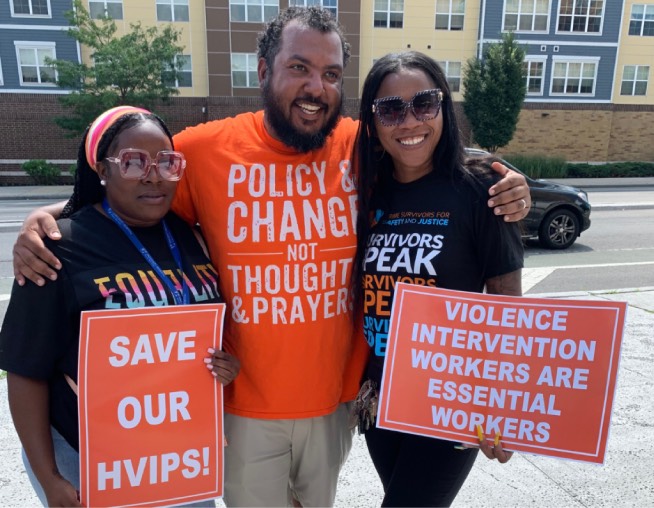Pillar 3: Political and Institutional
To be community-centered, a public safety ecosystem’s institutions must listen to community members and act on those conversations. This is the manifestation of the principle that those closest to the problems are best equipped to build the solutions.
To their credit, Newark’s institutions have done that. The Newark Police Division has been a prime example, working to reduce community and police violence. In addition to investigating and accounting for violent incidents perpetrated by its officers, the division must promote a healthier environment of trust and legitimacy.
The police reform process started, in 2009 with the Newark Anti-Violence Coalition, with the continued appearance in the streets of the organized community in combination with legal activism. The local ACLU chapter petitioned the federal government in 2010. NJ’s U.S. Attorney’s Office, along with the Department of Justice’s Civil Rights Division, launched an investigation in 2011, with robust community participation.
The trust that local organizations had earned allowed victims of abusive police behavior to tell their stories, forming the building blocks of a 2014 DOJ report. This document propelled an agreement between the federal and city government. The goal was to undertake structural changes within NPD, including the selection of an independent court-appointed monitor and incorporation of reforms in a judicially enforceable consent decree.
 The consent decree reform, in part, seeks to promote a culture of transparency and restore relationships with the community. Now, the police force is pioneering the use of body cameras and promoting open data operations and responsibility to the people. And to date, more than 300 police officers have participated in Equal Justice USA’s Trauma to Trust program, which creates empathy and understanding through the shared exploration of trauma.
The consent decree reform, in part, seeks to promote a culture of transparency and restore relationships with the community. Now, the police force is pioneering the use of body cameras and promoting open data operations and responsibility to the people. And to date, more than 300 police officers have participated in Equal Justice USA’s Trauma to Trust program, which creates empathy and understanding through the shared exploration of trauma.
Police transformation is still a work in progress in Newark. The community pushes forward, seeking an empowered civilian oversight board and expanded agency in the building of real public safety.


